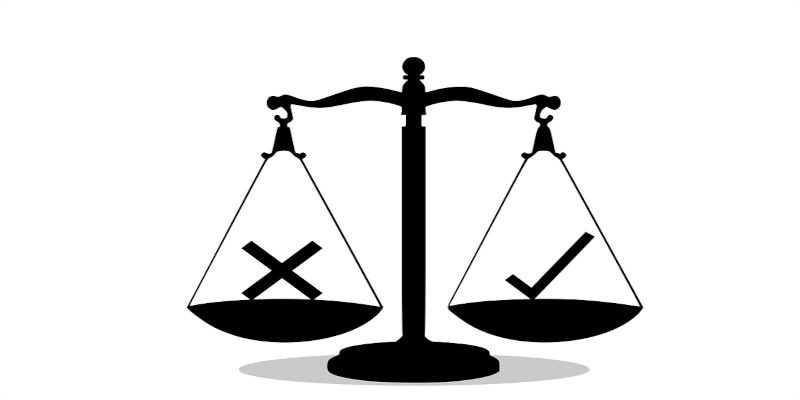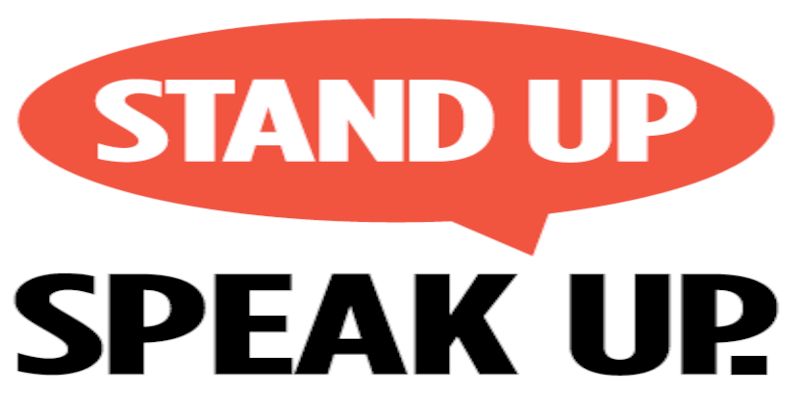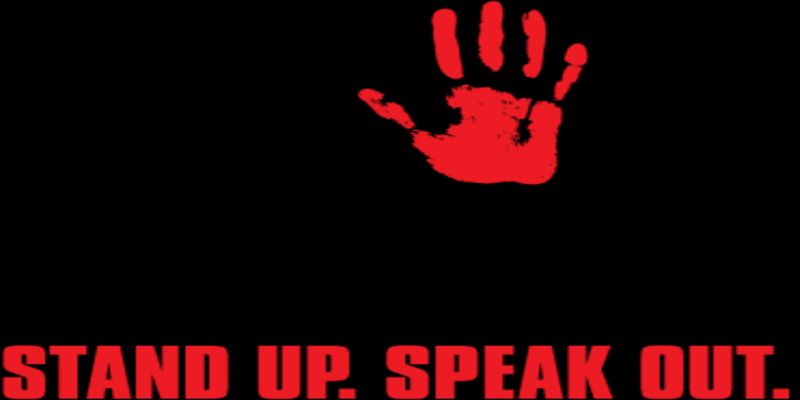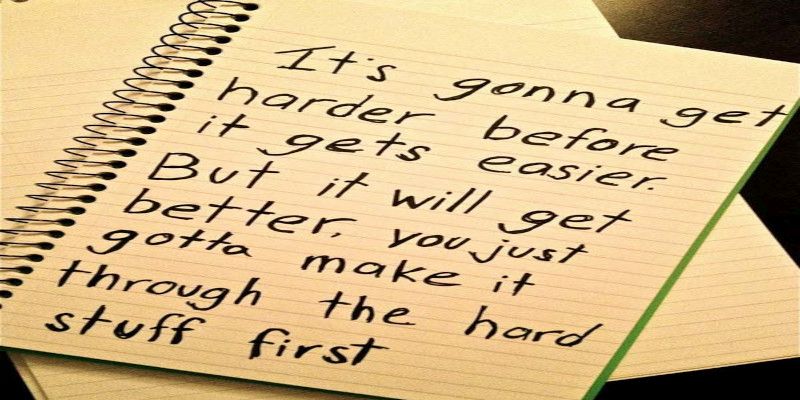Table of Contents
ToggleI regularly hear people say things like “Well, it just isn’t safe to speak your mind in our society” when the topic of freedom of speech comes up.
And as a matter of fact, that’s true! But the reality is that it never was. Not in the past, not in the present and it will not be safe in the future either. That’s a utopia.
But what people need to realize is that staying silent is not safe either. It’s even more unsafe than speaking up. Especially in the time that’s yet to come.
Let me explain why speaking your mind will never be safe, but neither is staying silent.
The dangers of speaking your mind

Being punished
The biggest danger of speaking your mind is being punished in some way, shape, or form.
Letting your voice be heard can lead to being punished by society or those in a position of power/authority. Especially if you’re the only one that’s asserting themselves, or going against the status quo.
There are many ways people higher up in the social hierarchy, or the mob mentality will try to punish you.
These methods vary from being made the laughingstock, to bullying, to being ignored or simply put, getting cast out.
All the above examples are different methods of penalization to get that outspoken individual to stay silent in the immediate present and/or future.
Being laughed at or ridiculed
The most common form of punishment when other people dislike if an individual speaks up is being laughed at and ridiculed.
Both are attempts to lessen the power of the person speaking up and an attempt at estranging that person in the group in an attempt to silence him/her and prevent that person from speaking up in the future.
The possible negative consequences of not speaking up

No control over your own life or society
The largest danger of not speaking up is that you lose all control over your own life and the world you live in.
If you don’t dare to stand up for yourself and others, then others will have a field day controlling you and your existence.
This means that although defending yourself can be dangerous, it’s still less unsafe and a better alternative than staying silent altogether.
Getting trapped into a state of learned helplessness
Learned helplessness is a behavior exhibited by an individual after enduring repeated aversive stimuli beyond their control.
Or explained in more human terms, it means losing all sense of control and thus, as a result, accepting one’s lack of power to control their own life.
As a consequence of this perceived lack of power over one’s own life, people displaying learned helplessness allow other people to control them and their lives by aiding them with everything, even the things they could do themselves.
It gets increasingly harder to speak up in the future

In psychological terms, this is called the foot-in-the-door phenomenon.
The foot-in-the-door phenomenon refers to the tendency for people who have first agreed to something, which is usually a smaller request, to comply later, down the road to a much larger request.
This means that agreeing to small demands, or not speaking up when we are slightly bothered by something we think isn’t right, effectively makes it harder to stand up for ourselves in the future each time we don’t.
Not to mention that it gets progressively easier for other people to get us to comply with things we don’t necessarily want to do, either.
Being bullied

We’ve already established that staying silent does not mean being, or staying safe.
Remaining quiet can cause other people to start viewing that silent individual as weak. Thus, being deemed an easy target to bully.
Bullies always seek the weakest (or at least the perceived weakest) target to intimidate. And the refusal and/or inability to stand up for oneself indicates exactly that. Weakness.
We should stop bullies in their tracks. Both when we’re the victim, and when we see others being targeted by aggressors.
Allowing society to turn malevolent

One of the consequences of not speaking up is allowing society to turn malevolent.
Not asserting yourself when the situation calls for it means you’re handing over your power to those who have no qualms about misusing these rights.
Every individual in society has the individual responsibility to take care of themselves and each other. That’s why it’s everyone’s duty to stand up not only for their own sake but also for the other citizens of society.
If multiple people refuse to speak up, then that means that the worst-case scenario is that the entire society can turn malevolent over time because there is no one, or too few people, to prevent this from happening.
Why staying silent is even more unsafe than speaking your mind

Staying silent is even more unsafe than speaking your mind because it means you have absolutely zero control over the events going on in your life. By refusing to speak up, you effectively lose control over yourself and your life.
You might think you are safe when not asserting yourself, and by staying silent in the background. And you might be. For a little while at least.
But what about when society turns malevolent, or when you see things happening to yourself or others that you know are wrong and unethical? How are you going to defend yourself then?
What if there’s no one else but yourself to depend on to survive? Meanwhile, you are stuck in the habit of staying silent and depending on other people for survival, while having no idea how to live your own life.
Not asserting yourself in such cases only reinforces bad and harmful behavior.
And if multiple individuals start employing that same mindset and strategy of remaining in the shadows quietly, then it means that there’s no one left to keep those around us and the people in authority in check.
Utilize your freedom of speech to improve society. People before us had to fight for that privilege, so don’t be afraid to employ and defend it.
Frequently Asked Questions (FAQ)
What does speaking your mind mean?
Speaking your mind, in simple terms, means expressing your opinions honestly and candidly.
Is speaking your mind a bad thing?

Speaking your mind is not a bad thing. It’s required if we wish to make positive changes in the world while simultaneously defending the truth and the weak.
Furthermore, it’s necessary if you want to control your destiny and prevent yourself from becoming angry, sad, and vengeful because you’re not satisfying your feelings.
Why is it important to speak up when injustice is being done?

Your voice against injustice is critical because if you don’t speak up, then values such as respect, honesty, and empathy will degrade even further creating even more room for misconduct to take place in the future.
It’s everyone’s task to defend those in need since we’re all active members of society. As a result, we all deserve to be treated equally well, and discrimination goes directly against our human rights.
Small issues tend to become big concerns when left unaddressed. That’s why we should speak up immediately when we notice any unfairness to prevent the problem from snowballing out of our control.
How to speak your mind without being rude?

Final take

It’s not safe to speak your mind. It never was, and never will be. But neither is staying silent.
Remaining quiet has even more potential dangers and pitfalls than speaking up has. Especially when we compare both methods further down the road.
And while it is hard at times to speak your perceived truth, especially when you’re up against a large group of people in authority, it’s still your best bet to maintain a well-functioning and cooperative society.
Furthermore, asserting yourself allows you to learn valuable life skills such as standing up for yourself, becoming assertive, carefully and thoughtfully putting your thoughts and words forward, and that good things rarely come easily.



